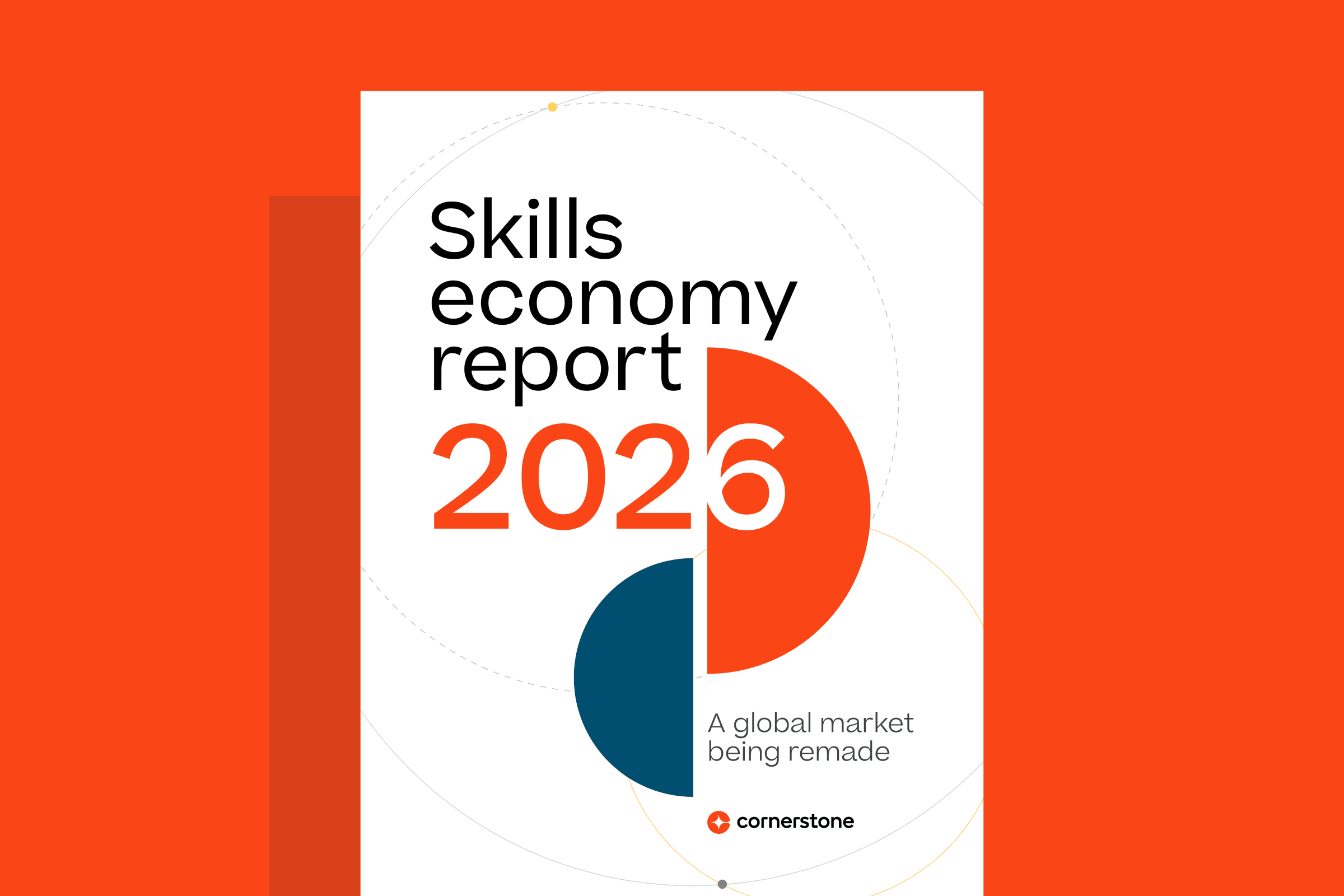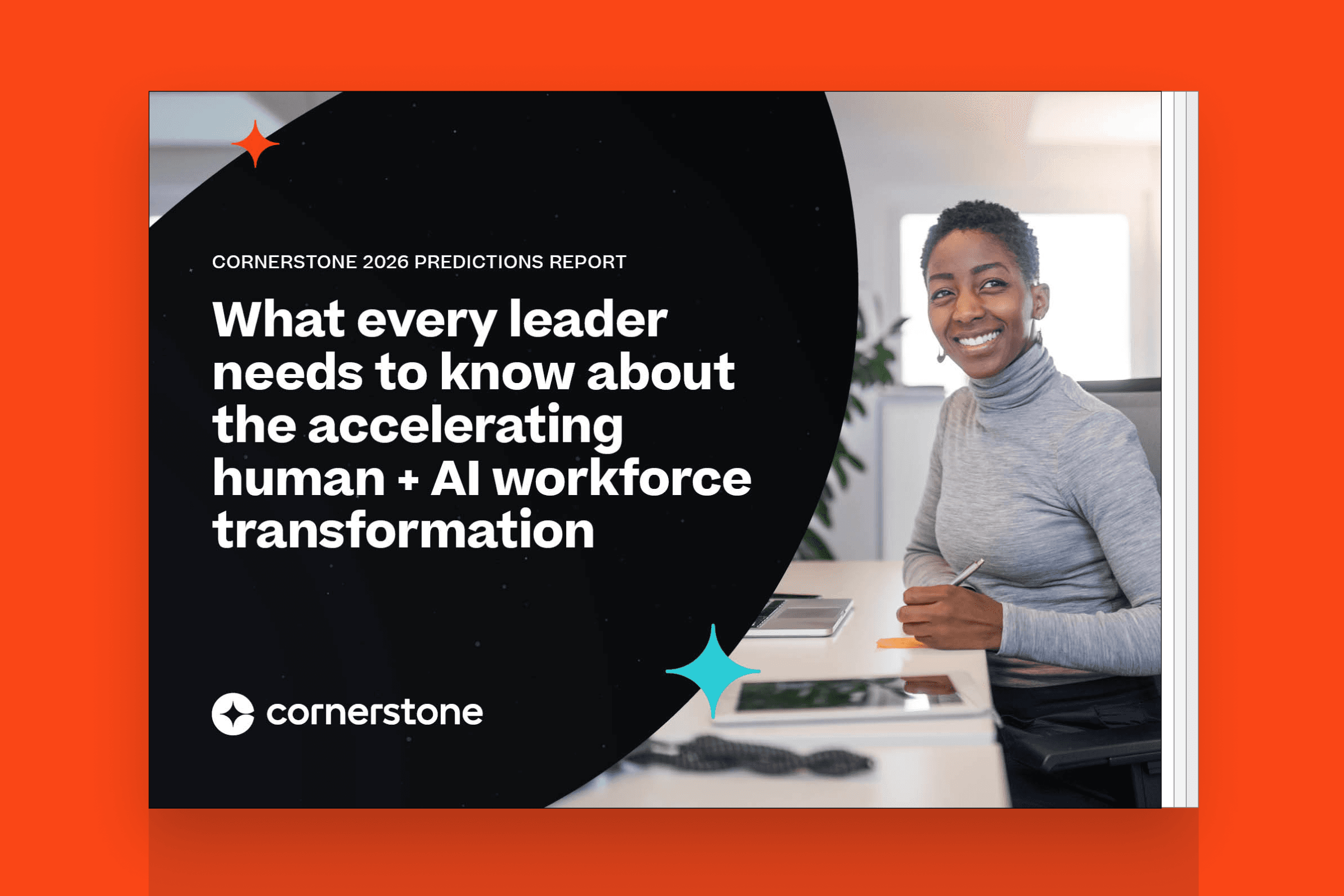Few people who follow the HR software industry were surprised by last week’s announcement by Oracle that they intend to acquire recruiting and talent management vendor Taleo. In the wake of December’s acquisition of SuccessFactors by SAP and the preceding two years of increasingly frantic market consolidation, the news was greeted with little surprise.
There’s not much point in rehashing the analysis of some very smart HR practitioners and industry analysts here. The discussion taking place on Bill Kutik’s HR Tech Conference LinkedIn group is clearly a fine place to review the reaction.
From Cornerstone’s perspective, naturally, we have clear ideas about what the Taleo and SuccessFactors acquisitions mean for buyers of talent management software and services.
First, we believe that these shifts signal the beginning of talent management – not the end. Talent management is now more important than ever after $5.5 billion has been spent on acquisitions of TM applications in last 3 months.
Further, and more critically, we would suggest that buyers are at a serious crossroads today, facing very significant choices around where talent management software is going in the coming years, who will control it and what it will look like.
At the Crossroads
With Taleo and SuccessFactors giving up on providing independent talent management technologies, Cornerstone is really the only choice left if you favor an independent, best-of-breed solution. Why does this matter?
Choice #1 - ERP or Best-of-Breed: Buyers looking for compelling answers to their vexing talent management problems have to choose between, on the one hand, an ERP vendor, offering a mixed bag of products (acquired, homegrown, SaaS, on-premise) with long innovation and upgrade cycles and, on the other hand, a best-of-breed provider focused completely on talent management, client success, business impact, and pure Software-as-a-Service (SaaS) delivery. The choice is yours.
Choice #2: - Integration vs. Innovation: Do you want your partner continuously improving your solution to provide state-of-the-art talent management or do you prefer to have your vendor tied up in a quagmire of product integrations?
The talent management product integration and rationalization challenges now facing Oracle and SAP are daunting. "Sorting out the myriad HCM-related code bases at both SAP/SFSF and Oracle/PSFT/Fusion/EBS/Taleo/Etc. is not for the feint of heart," opines Naomi Bloom in the HR Tech Conference LinkedIn discussion group. It’s not just an overwhelming task to sort out these talent management products and codebases, but it’s also going to take a long time.
Further, if you are interested in learning and development (and you should be, just ask Josh Bersin – see his blog on the subject), consider that Learn.com (previously acquired by Taleo) and Plateau (previously acquired by SuccessFactors) clients have both been acquired twice in less than a year and are now buried under two layers of bureaucracy.
The choice is yours.
Choice #3 - System of Record or System of Engagement: Talent management should be about employee engagement and empowerment. ERP systems are about managing records and data. An independent, best-of-breed provider has the luxury of focusing innovation and the product roadmap on user centricity and helping clients to build an empowered workforce. With all trends pointing to the need to engage a demographically shifting workforce, we believe buyers will prefer to side with a state-of-the-art, organically developed talent management solution rather than a bolted-on extension of a system of record. The choice is yours.
Choice #4 – Who Owns This Thing? IT or HR? In large enterprises, ERP systems are almost always controlled by the IT department. Often, the HR department and line of business owners struggle to get attention for their specific needs. Cloud-based technologies have enabled HR to control their destiny and closely align people, process and technology with business priorities. With formerly independent talent management software now becoming system-of-record dependent, customers will likely be locked into a single ERP stack where IT will regain sole control over technology decisions. This might be an acceptable paradigm for some HR organizations, but it seems less likely to lead to successful talent management outcomes. The choice is yours.
Back in December, we posted some thoughts about what the SAP-Success Factors merger meant for clients and potential buyers of talent management software. The issues at hand today are much the same and focus on the ability of the independent, best-of-breed vendor to deliver things like a better product, better client experience, more innovation, and faster response to client feedback. Compared to the challenges and confusion facing the ERP vendors and their recent absorption of talent management companies, the choices seem quite stark.
If you want to read more, we found these resources to be noteworthy:
♦ With Oracle’s $1.9 Billion Deal to Buy Taleo, Is Cornerstone Next? (Bloomberg / Peter Burrows)
Walravens thinks Cornerstone will perform well as an independent company, and that its growth rates are "tremendous."... Being the last independent talent management provider could goose Cornerstone’s sales. While loyal SAP shops will gladly use SuccessFactors and Oracle shops will gravitate to Taleo, Cornerstone is positioned to grab those that don’t want to buy into these giants’ soup-to-nuts offerings.
♦ Cornerstone Gears Up for Bigger Foes in Talent Management (Wall Street Journal / Steven D. Jones)
Nomura analyst Rick Sherlund said he liked the "elegance of the product architecture" from Cornerstone and its ease of use. In addition, he said, Cornerstone may benefit from merger confusion at both SuccessFactors and Taleo and difficulty integrating those products into the inventory of products at SAP and Oracle.
♦ Cloud Software Consolidation - Is it all good? (ZDNet / Brian Sommer)
I also get concerned when a progressive, modern vendor is snapped up by slow moving behemoths that excel in running end-of-life product lines...Vendors will create incredible works of fiction to explain how they will rationalize these products into their product lines. Let’s face it, if the software solution your organization is using is acquired by a firm that already has three, four or five different acquired product lines of similar functionality, don’t you think it’s going to take either the suspension of disbelief or an amazing technical writer to create a story that shows how all of these diverse products from very different creators, across different time lines and technical platforms will somehow come together in some single rational scheme?
♦ News Analysis: The Implications of Oracle's Acquisition of Taleo (Forbes / Ray Wang)
These defensive plays indicate a realization that Cloud delivery emerges as the predominant option for applications.
♦ Roll up, roll up! Oracle digests Taleo (ZDNet / Oliver Marks)
Cornerstone are true multi tenant in their architecture, and some of their appeal to customers and prospects is sure to be the SaaS advantages of pushing out updates painlessly, as opposed to endless patch Tuesdays and upgrades many in the marketplace have past war wounds from.


